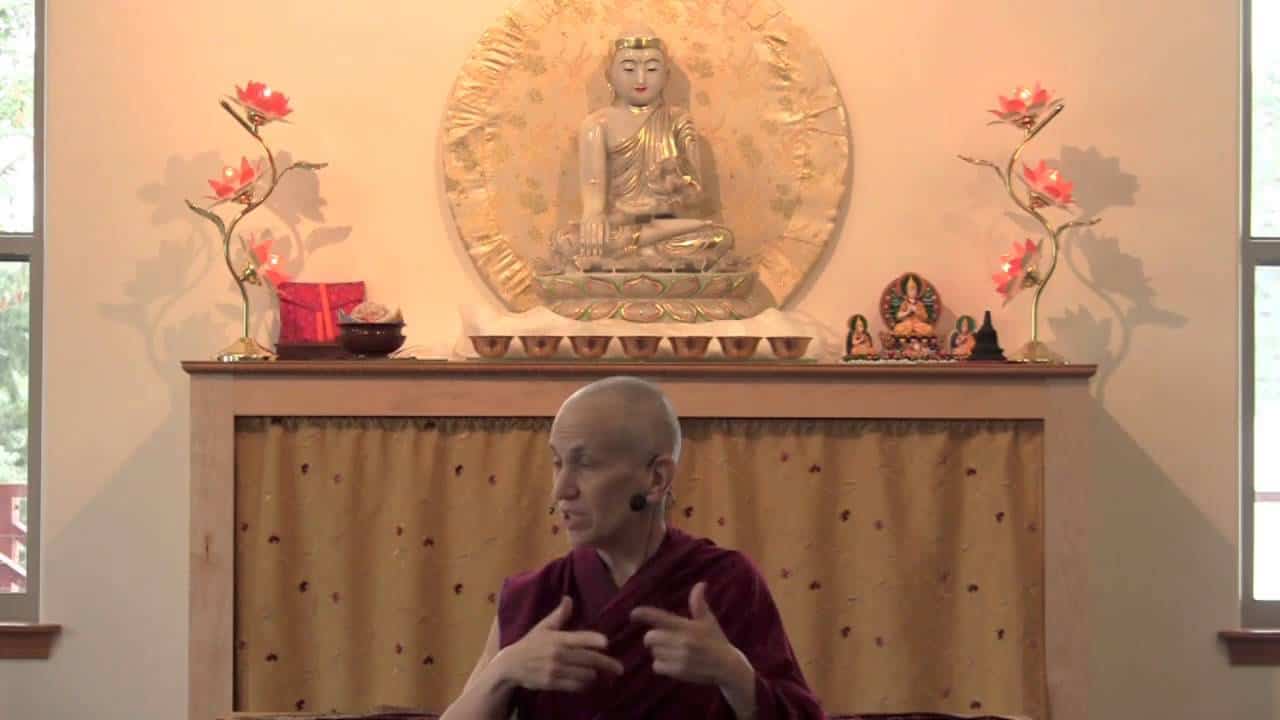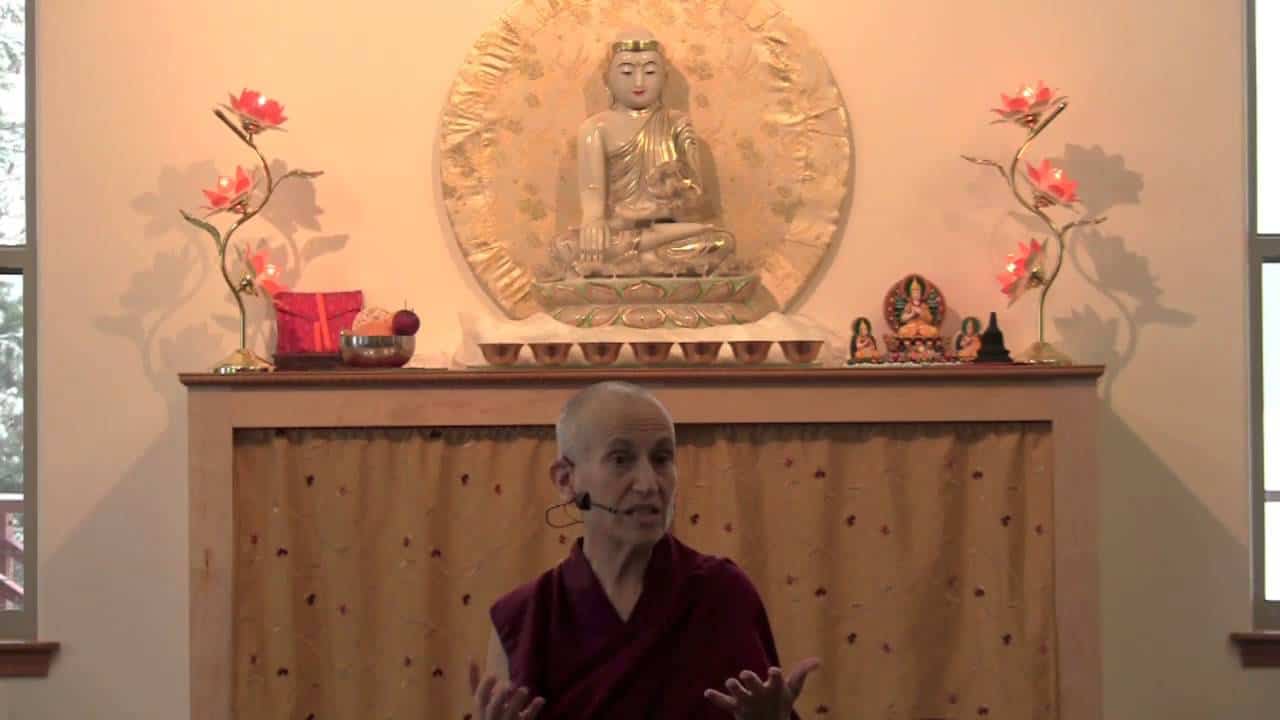Fear about the world
Confusing compassion with despair

This talk originally appeared on Bodhisattva's Breakfast Corner and was edited for the Awakening Buddhist Women blog.
There’s a lot going on in the news these days, which can lead thoughtful people to reflect on the state of the world. Generally, however, we don’t know how to do this in a skillful way. For many of us, reflecting on the state of the world creates a state of distress, and our minds get tight and fearful.
Within that fear there is a lot of “I-grasping,” which we sometimes confuse with compassion. We think, “When I look at the world, and see so much suffering I feel compassion for people.” But in fact, we’re miserable, feeling a sense of despair, fear, depression, and so on. That isn’t genuine compassion. Not recognizing this, some people get afraid of feeling compassion, thinking that it only makes us feel awful. This is a dangerous thought, because it can lead us to closing our hearts to others.
Compassion focuses on the suffering of others, but when we feel despair and fear, we are focused on our own suffering. So getting depressed when seeing the suffering of the world is not indicative of compassion. Instead, we’ve fallen into personal distress. It is helpful to notice this when we seem to be sliding into that state of despair.
A skewed view
When His Holiness the Dalai Lama was in Seattle in 1993, many journalists attended his public talk. He told them, “You people do a lot of good things. Sometimes you have long noses. You search out all the naughty things people are doing and point them out. And that’s good.” In other words, the press reveals scandals and so on, and, in that way, stops harm.
He continued, “But sometimes you focus too much on the negative. How many people in one city are murdered every day? Sometimes nobody; sometimes one. But what happens if one person is killed in the city? That gets on the front pages, all over. Everybody is upset about it! But the good things people do for each other seldom appear on the front page.”
It’s true, isn’t it? Once in a while, a philanthropist will leave money to a charity in his will, and that will make the front page. But most often the media emphasizes things that make us afraid. When we read the newspaper or watch the news, we get a very skewed view of the world, because we see only the harmful things people do to each other. The news doesn’t report all the helpful things, and there are so many of them.
Seeing the kindness of others

Our entire world functions only because people help each other. (Photo by Ajay Jayne)
If you look in a city, on one day how many people are helped by healthcare professionals? An incredible number! How many people receive help from teachers on that day? So many adults and children! How many people are helping others by fixing their cars, telephones, or computers? If we look at any town, city, or rural area, people are helping each other all the time. We take this for granted and hardly notice it. We need to spend more time reflecting on the kindness we’ve received from others on each day, as well as on the kindness we’ve seen in general. Our entire world functions only because people help each other. None of us could make it alone.
Maintaining a balanced view
I suggest that if we are suffering from fear and despair about the state of the world, we have a skewed and unbalanced view of what’s going on. Of course this doesn’t mean that we say, “Oh, everything is cheery and wonderful. There aren’t any problems.” That’s not true. But we can see that there is a continuous base of kindness and goodness in this world. We can pay attention to that, be inspired by it, and use it to motivate ourselves to increase our kindness towards others.
We can also point out to the people around us the way they help others. In that way, they will see their own kindness, which will inspire them. We can also point out the kindness we receive from strangers. All this is inspiring. In other words, instead of focusing only on the problems and suffering in the world, we train our mind to also see the kindness and help that people give to each other.
When we are fearful about the state of the world, we can ask ourselves, “Am I seeing things correctly? Is violence all that is happening?” Even in the midst of tragedy, people help each other. Let’s try to make our minds more balanced. We acknowledge that a situation may be horrible, but we also remember there is a lot of goodness too. By recognizing that there is still goodness in the world, we might have a chance to change the horrible things.
When we only focus on what is horrible, we sink into despair. When we are overcome by despair, we don’t even try to change anything. So it’s very important to see the goodness. Then let the fear go and instead reach out to others with an open heart.
Venerable Thubten Chodron
Venerable Chodron emphasizes the practical application of Buddha’s teachings in our daily lives and is especially skilled at explaining them in ways easily understood and practiced by Westerners. She is well known for her warm, humorous, and lucid teachings. She was ordained as a Buddhist nun in 1977 by Kyabje Ling Rinpoche in Dharamsala, India, and in 1986 she received bhikshuni (full) ordination in Taiwan. Read her full bio.


